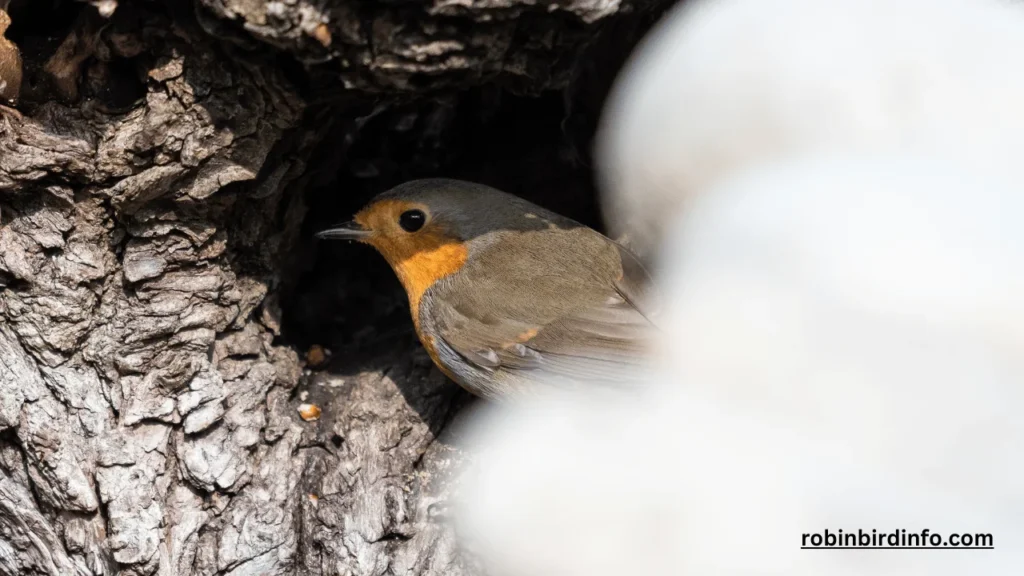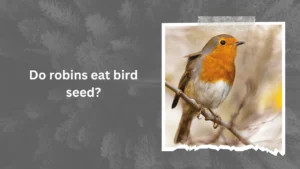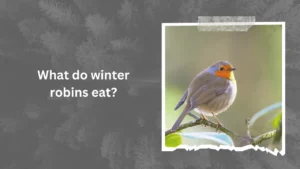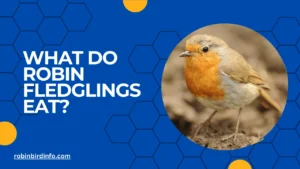Have you ever watched a robin intently foraging on your lawn, its quick, purposeful movements hinting at a hidden feast?
While worms are famously a robin’s favorite food, you might wonder: do robins eat grasshoppers? The answer reveals not only their dietary habits but also their role in keeping ecosystems in balance.
Robins are omnivorous birds with a diverse diet that includes insects, berries, and fruits. Their adaptability in finding food allows them to thrive in various habitats, from backyards to forests.
Grasshoppers, though not their primary meal, can play an important role in a robin’s diet, especially during certain seasons when insect populations peak.
Understanding what robins eat offers fascinating insights into their behavior, their ecological importance, and even how they can help control garden pests naturally.
This article dives deep into the relationship between robins and grasshoppers, exploring their hunting techniques, seasonal dietary shifts, and how they contribute to biodiversity.
Contents
Robins’ Diet and Feeding Habits:
Robins are omnivores, which means they have a varied diet. While they are often seen pecking at the ground for worms and insects, their diet extends beyond these familiar choices.
They are known to eat fruits, berries, and even seeds when other food sources are scarce. The balance between these food sources is vital for their survival, especially during the colder months when insects are less abundant.
However, insects like grasshoppers are often a significant part of their diet, especially during the spring and summer months when these creatures are more prevalent. Understanding the Robin’s varied diet helps us see why grasshoppers could be on their menu.
The Relationship Between Robins and Grasshoppers:
While many people may associate Robins with their love of earthworms, these birds are highly opportunistic feeders and will happily consume a variety of insects. Grasshoppers are among the insects Robins hunt and eat.
They can typically be found foraging in open areas like gardens, meadows, and lawns, where grasshoppers are abundant. Robins usually rely on their keen eyesight to spot grasshoppers, quickly swooping down and catching them in their sharp beaks.
Grasshoppers provide Robins with a protein-rich meal, essential for their growth and energy, especially during the breeding season. This relationship between Robins and grasshoppers helps maintain balance in insect populations.
Robins’ Feeding Behavior and Techniques:
The feeding habits of Robins are quite fascinating. When hunting for insects like grasshoppers, Robins use their sharp vision and quick reflexes to hunt effectively.
Unlike some birds that rely solely on smell, Robins are highly visual hunters, spotting their prey from a distance before quickly darting in to snatch it up. Their sharp beaks are also designed to break down tough exoskeletons, allowing them to feed on grasshoppers and other insects with ease.
This efficient feeding technique helps Robins thrive in a variety of habitats, from suburban lawns to more natural woodland areas, where grasshoppers are abundant.
How Grasshoppers Benefit Robins:
Grasshoppers play a crucial role in the diet of Robins, providing an excellent source of protein and other essential nutrients.
These nutrients are vital for Robins, especially during the breeding season when they need to sustain their energy for both survival and raising their young. The high-protein content of grasshoppers supports the growth of young Robins and the health of adult birds.
Moreover, grasshoppers are a natural part of the food chain, helping to maintain the balance of insect populations. As Robins feed on grasshoppers, they prevent overpopulation of these insects, which could otherwise damage vegetation and disrupt local ecosystems.
Factors That Influence a Robin’s Diet:
While grasshoppers are an important part of a Robin’s diet, several factors influence their food choices. Seasonal availability plays a major role in their diet.
During the warmer months, insects like grasshoppers are abundant and easy to catch, making them a preferred choice. However, when temperatures drop and insects become scarce, Robins shift their focus to berries and fruits.
Habitat also plays a role; Robins in urban areas may have access to different food sources compared to their rural counterparts. Additionally, weather conditions and the presence of other predators can impact a Robin’s ability to hunt and forage for grasshoppers.

Conclusion
Robins, often viewed as gentle and harmless birds, exhibit surprising behaviors when it comes to their diet and feeding habits.
Their ability to consume a variety of foods, including grasshoppers, demonstrates their adaptability and importance in maintaining a balanced ecosystem. By consuming insects like grasshoppers, Robins help control insect populations, ensuring that nature stays in balance.
Whether in your backyard or a meadow, the sight of a Robin hopping across the ground may be more than just a sign of spring—it’s a reminder of the intricate and fascinating ways nature works.
So next time you see a Robin, remember that it’s not just their bright red breast that makes them stand out, but their role in the food chain and their surprising diet.
FAQ’s
Do robins eat grasshoppers frequently?
While not a primary food source, robins eat grasshoppers when they are abundant, especially in summer.
Why do robins eat grasshoppers?
Grasshoppers are rich in protein, making them an excellent source of nutrition for robins and their chicks.
Where do robins find grasshoppers?
Robins hunt grasshoppers in open grassy areas, such as lawns, fields, and meadows.
Are grasshoppers more common in a robin’s diet during specific seasons?
Yes, robins are more likely to eat grasshoppers during summer when these insects are most plentiful.
How do robins catch grasshoppers?
Robins use their sharp eyesight to spot grasshoppers and their quick reflexes to catch them.
Do robins prefer grasshoppers over worms?
Worms are the robin’s primary food source, but grasshoppers are a valuable supplement, especially during breeding.








